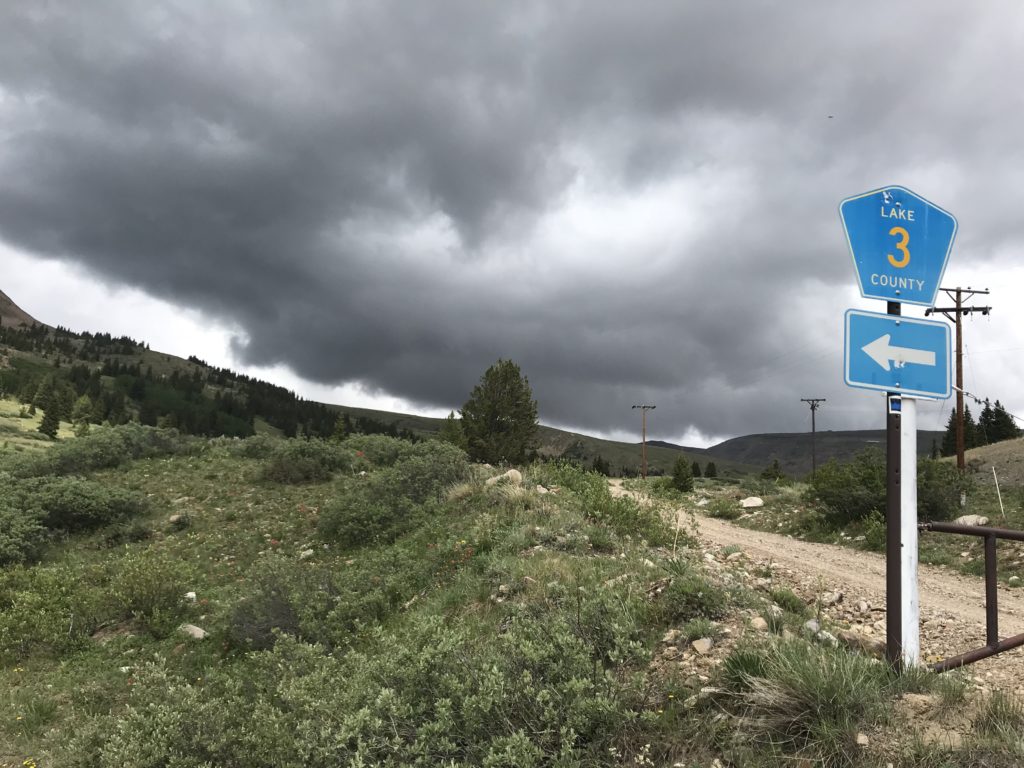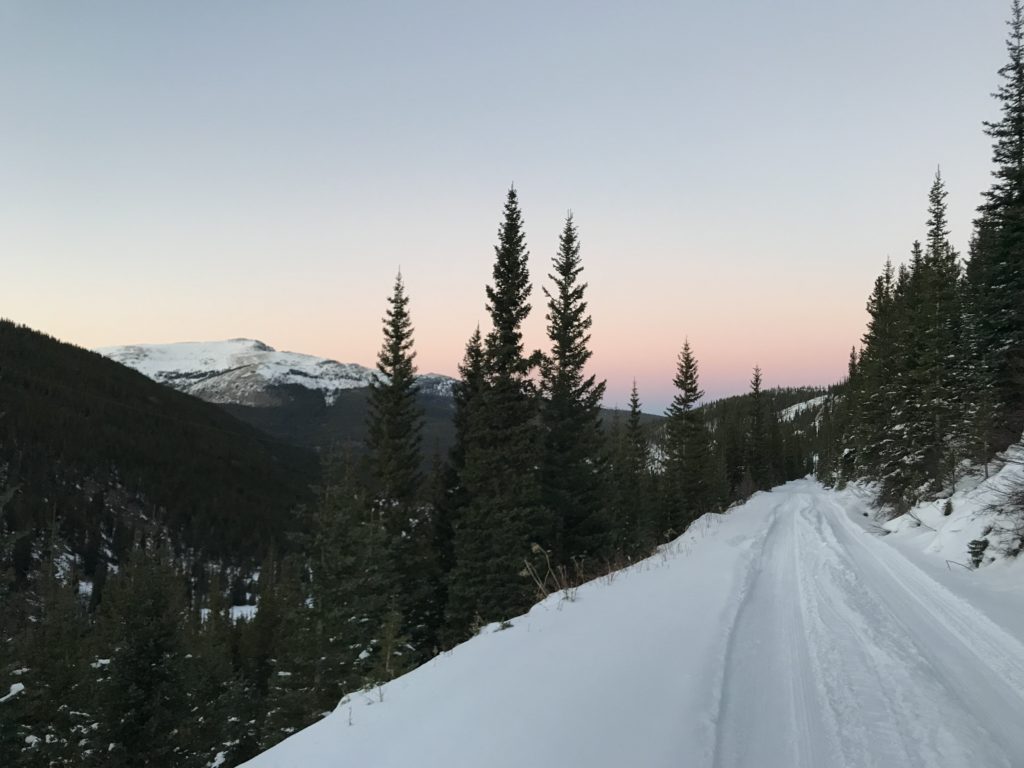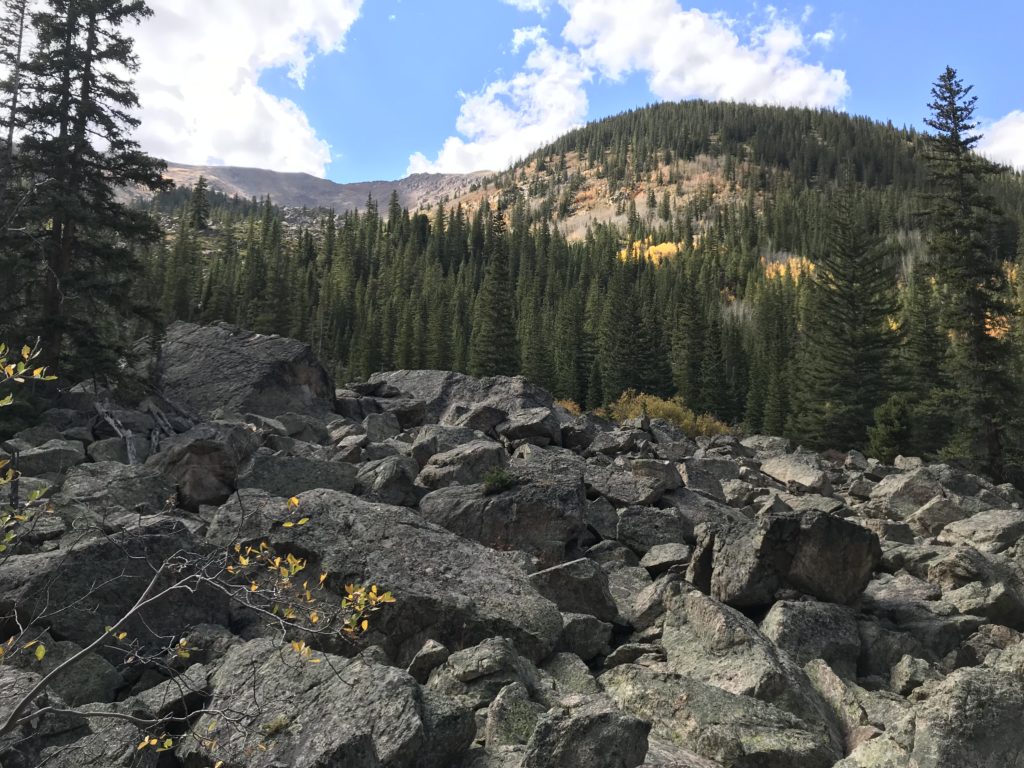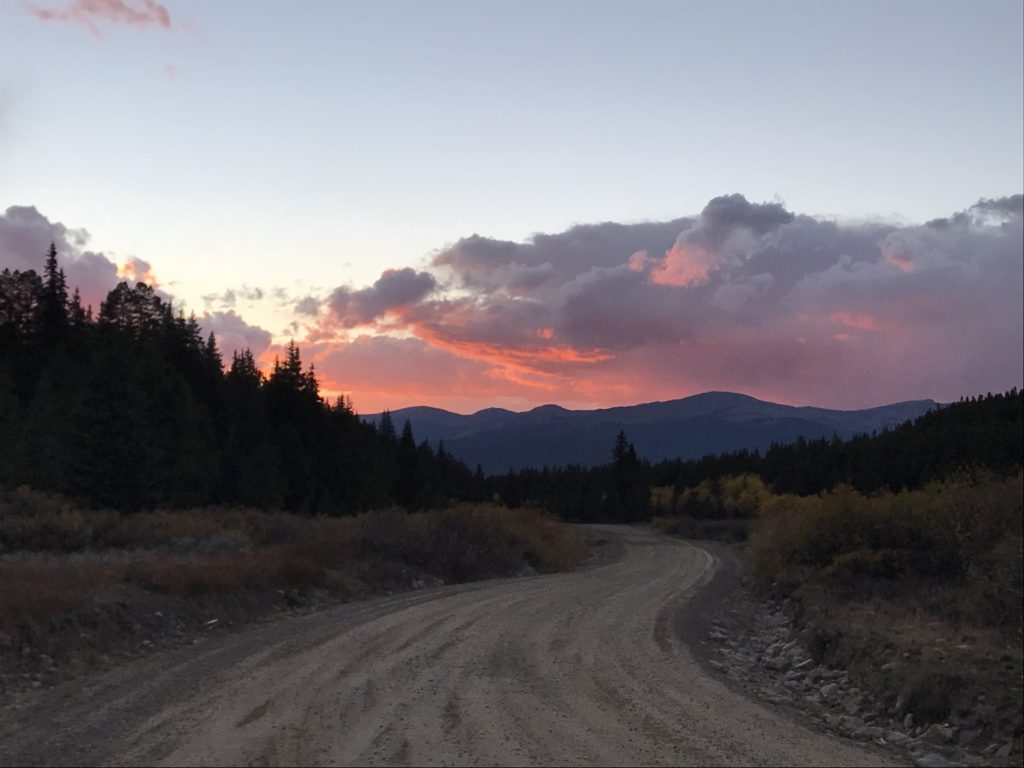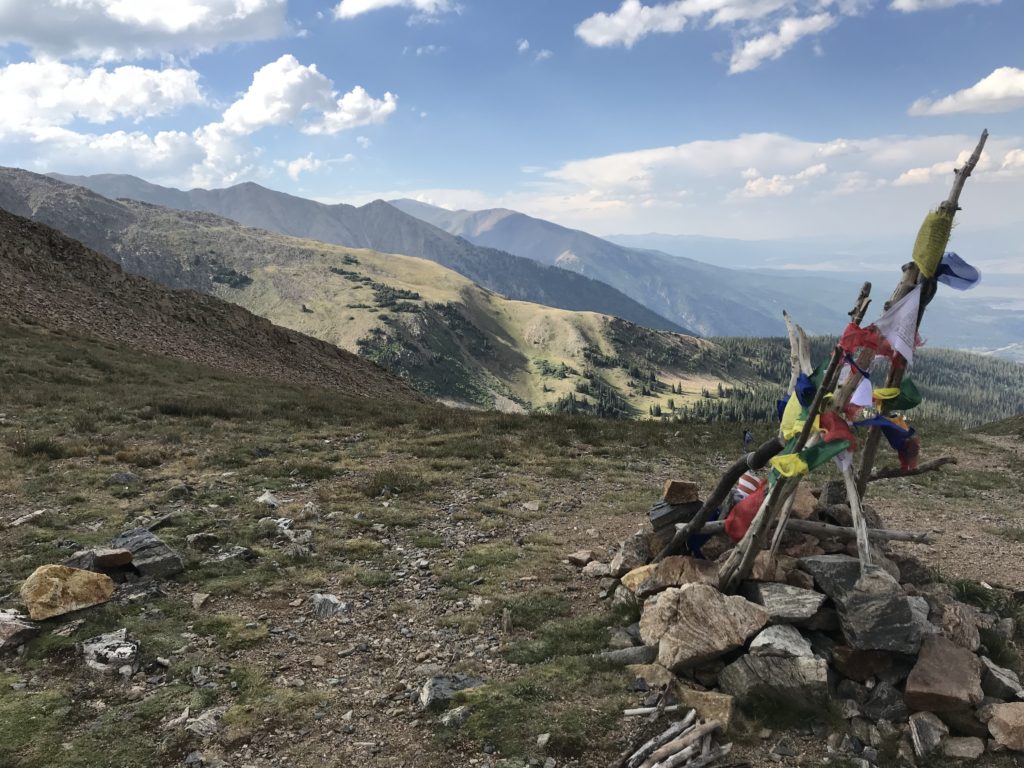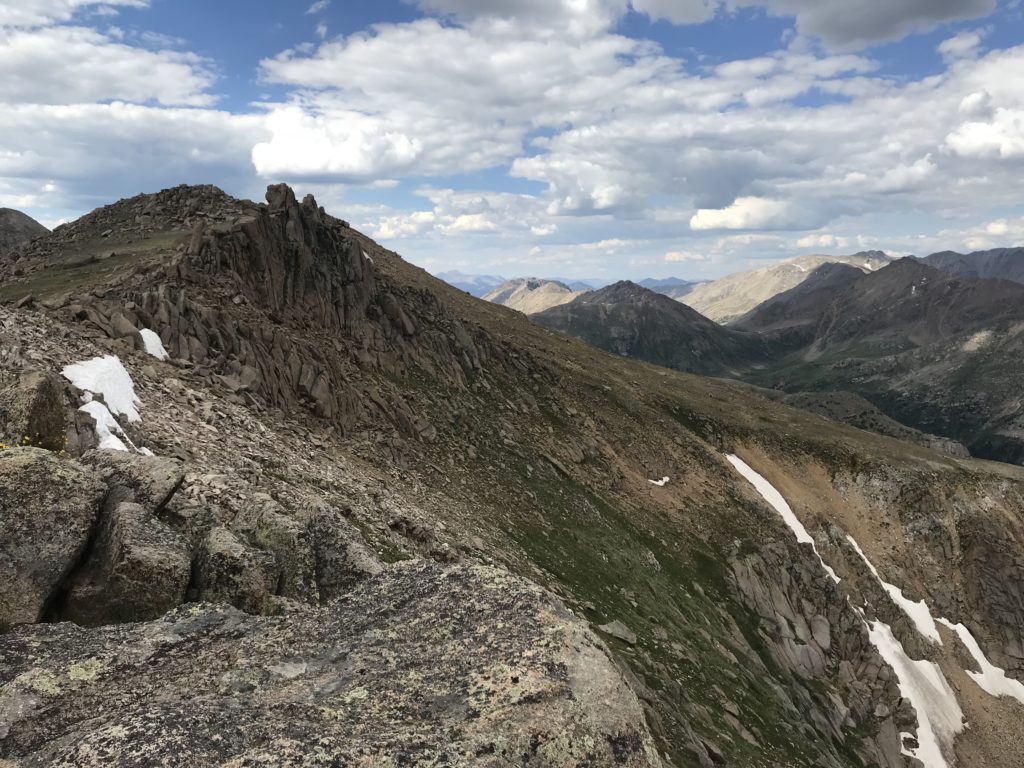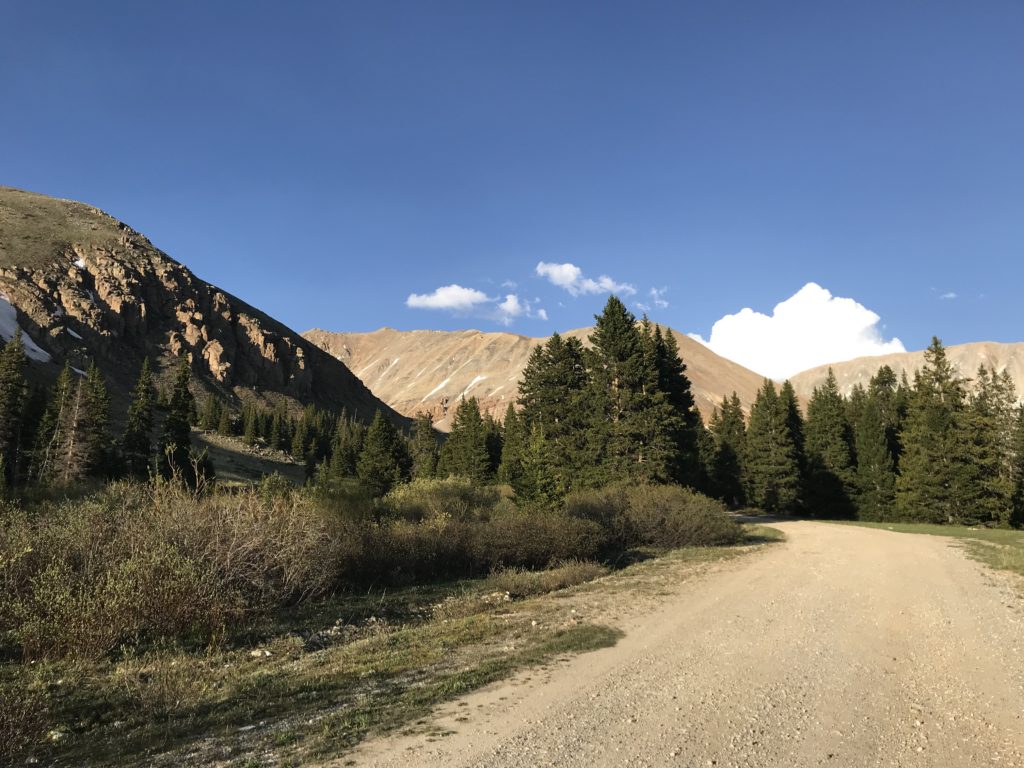
Weather and terrain conditions can change rapidly and unexpectedly in the high altitude of Lake County, Colorado. It is important to carry the gear necessary for the worst, while always hoping for the best!
Lake County Search and Rescue recommends each group or individual carry the following 10 essential items:
- Nutrition
Always carry energy-rich food when traveling in the backcountry. Your body burns through energy stores much faster at altitude and under exertion. While each body is unique in its caloric needs, the average person will burn between 400-1000 calories per mile when hiking uphill at altitude. Pack enough calories to keep you fueled for the extent of your hike. Remember, it never hurts to carry some emergency rations as well.
- Hydration
Always carry sufficient water for your hike. Plan on carrying one liter per hour of hiking time. Drink more water if your urine is dark or nonexistent. Do not drink from streams, rivers, or lakes unless it is an emergency. Even clear, running water can make you sick.
- Illumination
Always carry a source of illumination that isn’t your cell phone. Cell phone batteries can drain unexpectedly in the backcountry, especially if they are not on airplane mode, and you want to conserve the battery in the event of emergency. Should your group be delayed, or your hike take longer than anticipated, finding your way back to the trailhead in the dark can be extremely difficult. A small handheld flashlight with extra batteries or a headlamp with extra batteries will both serve you well should your hike unexpectedly keep you in the backcountry after dark.
- Insulation
Always carry warm, insulative, non-cotton layers and waterproof tops and bottoms. Weather in the backcountry can change rapidly, and in summer afternoon thunderstorms are an almost daily event. Additionally, temperatures near or above treeline can be significantly colder than at the trailhead. Be prepared to be able to stay warm and dry during snow, hail, and sleet all months of the year.
- Sun protection
Always apply sun protection before your hike in the form of sunscreen or protective clothing, and always bring sunscreen with you for frequent re-application. Wear a hat and sunglasses.
- Navigation
Always carry an up-to-date topographical map of the area in which you are traveling and know how to read it. Research your route prior to departure, and be familiar with prominent landmarks and other trails in the area. Consider downloading a GPS mapping and navigation app to your phone, or carrying a handheld GPS unit with extra batteries.
- First-aid kit
Always carry a first-aid kit. Medical supplies such as gauze and bandages, bandaids, butterfly closure strips, and basic medicines like ibuprofen can be the difference between a minor mishap and a totally ruined day. Always be prepared to attend to minor medical issues — your own and those of others around you — as help may be several hours away.
- Fire starter kit
Always carry a fire stater kit. A minor injury may prevent you or a member of your group form moving quickly enough to generate sufficient body heat. Fire starter kits are small and lightweight, and provide peace of mind during low temperatures.
- Repair kit
Always carry a repair kit to tend to your gear. Common items include several feet of duct tape (often wrapped around a hiking pole or water bottle), a tent pole repair sleeve, extra shoelaces, a small screwdriver for eyeglasses, replacement backpack buckles, and zip ties. Bring items that are small and light, but useful for a variety of repairs.
- Emergency shelter
Always carry some form of emergency shelter. When an unexpected emergency arises, you may be forced to remain in the backcountry overnight to await rescue. Bivy sacs and space blankets are very compact and lightweight. Both will help you maintain body temperature overnight, with proper clothing.
